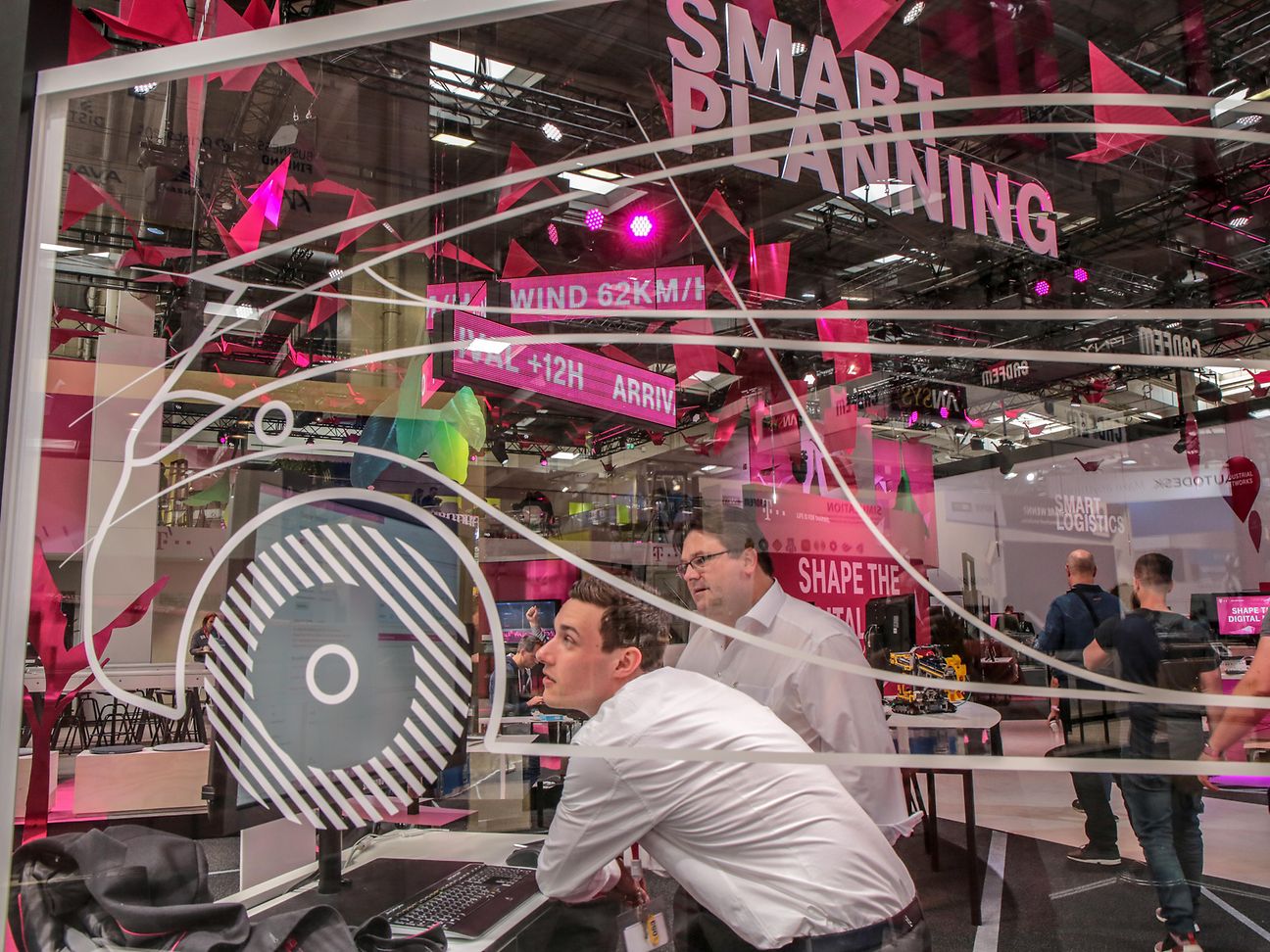

High polish at HANNOVER MESSE – Industrial production goes digital
It remains one of the top events on the international trade calendar: HANNOVER MESSE – the world's leading trade fair for industrial technology, a meet and greet of the market leaders in key technologies and those who strive to join them. 5,000 exhibitors and at least 1,400 events. Government representatives were welcome guests among the some 200,000 visitors, including Germany's chancellor, its economics and education ministers, and the president of Mexico, this year's partner country.
Industry 4.0, a term first coined at HANNOVER MESSE nearly seven years ago, is already a firm fixture at most companies. One in four machines is already smart and the vast majority of companies has already developed an overall Industry 4.0 strategy. The evolution into a platform industry seems unstoppable.
The booths of the individual companies reflect this impressively. Top-quality high tech everywhere you look: in industrial automation, IT, manufacturing technologies, and mobility solutions. Today's production sites – at least as far as the presentations at HANNOVER MESSE illustrate – are highly polished, transparent, and smart. Everything moves on its own, as if enchanted: heavy components are transported by autonomous fork lifts and factory workers will perform their tasks with the help of smart glasses in future, which virtually display the movements they have to perform next.
In the robotics halls, the exhibitors demonstrated a variety of impressive machine ballet moves, with digital choreography. Man and machine – a fascinating project, whether it involves an unequal battle at a ping pong table, a digitalized beer dispenser, or an artificial 3D factory of the future. Siemens is also presenting the digital factory experience, having occupied what seems like half of hall 9, impressively demonstrating that German companies can still stake a claim to the title of global leader in mechanical and electrical engineering.
The future of industry is starting "now"
Deutsche Telekom mirrored the trade fair trends on a smaller scale at its booth, under the motto "Shape the digital now": "Every one of our visitors should take a new idea for digitalization home with them from HANNOVER MESSE," said Adel Al-Saleh, Deutsche Telekom board member and
One conspicuous trend among the exhibiting companies: many are advertising actively to attract new talent – including Deutsche Telekom. Despite (or perhaps because of) the currently bright growth prospects for business – all 28 EU countries are growing simultaneously for the first time in 10 years – there is a shortage of skilled workers. Dieter Kempf, head of the Federation of German Industries BDI, called it a "domestic brake on growth". The recruiting of Industry 4.0 experts at HANNOVER MESSE showed how businesses hope to counter it. Deutsche Telekom alone aims to hire 350 new IoT specialists.
The other side of Industry 4.0 is that many current jobs will become obsolete. Just in time for the big show in Hanover, Forbes presented an ABB study on the expected overall impact of industrial automation, artificial intelligence, and IT on global labor markets. According to the study, some 800 million jobs worldwide are at risk – particularly in countries that traditionally serve as "extended workbenches" for commissioned manufacturing. In contrast, countries like South Korea, Japan, and Germany are well equipped. In these countries, at least, digitalized industry will remain a major source of employment in the future.


